La Iniciativa de Acceso se enorgullece de anunciar una búsqueda de Campeones de Escazú.
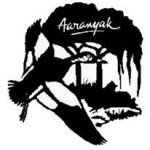
Aaranyak
Founded in 1989, Aaranyak is a non-governmental organization based Guwahati, Assam, India and focused on conserving nature, natural resources and biodiversity in Northeast India and the Eastern Himalayas. Aaranyak is grounded in the belief that environmental conservation and sustainable management is integral to the welfare of people and their environmental security. In order to achieve its conservation objectives, Aaranyak carries out awareness, education, research, capacity-building and policy advocacy. Aaranyak divides its work into eight principal programs: the Environmental Education and Capacity Building Program, the Community Based Conservation Program, the Water Climate and Hazard Program, the Wildlife Genetics Program, the Northeast Threatened Species Conservation Program, the Legal and Advocacy Program, the Geo-spatial Technology Application Program, and the Wildlife Health and Research Program. Aaranyak is recognised as a Scientific and industrial Research Organisation (SIRO) by the Government of India. Recently it has won the Indira Gandhi Paryawaran Puraskar (An award instituted in the name of the late Prime Minister of India, Indira Gandhi and given to organisations providing excellent environmental services) for the year 2012, the most prestigious environmental award given to NGOs in the country from the Ministry of Environment, Forest and Climate Change, Government of India.
- Address
-
India
- partha@aaranyak.org
Ecological Foundation
The Ecological Foundation is a think tank based in New Delhi that critically analyzes development through research and advocacy. Their research areas include, water, forestry and climate change.
- Address
-
India
- sudhirendarsharma@gmail.com

Environics Trust
Environics Trust is a not-for-profit research and community development organization. Their mission is to evolve innovative and evidence based solutions to the problems of community development that respond to the diversity and complexity of specific eco-systems and socio-political-cultural environments. Environics conducts participatory research on issues of environmental and human behavior and uses these outcomes for innovative community development programs. Environics provides research and evaluatory services to international, national, state and local institutions. Environics works directly with marginalized communities such as those in the mountain regions, tribes, and communities adversely affected by mining and industrialization.
- Address
-
India
- environics@gmail.com
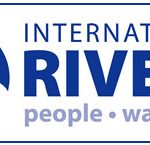
International Rivers
International Rivers' South Asia chapter seeks to promote the goals of the larger organization in the context of destructive dam building taking place in the region. The overall mission is to work to value and protect healthy rivers and the rights of local communities. With the understanding that energy and water needs can be met without degrading nature or increasing poverty, International Rivers has been fighting against dam construction since the 1980s. International Rivers strongly believes that people have the right to participate in decisions that affect their lives and environment. Previously, International Rivers has specifically focused on the proposed dams on the Narmada River, working to mobilize international pressure to prevent the dam construction. Today, International Rivers South Asia chapter is working in the Himalayan region across India, Bhutan and Nepal as well as supporting partners in Pakistan, Bangladesh and Sri Lanka. They continue to work in cooperation with a network of activists and organizations and collaborate to challenge large hydropower projects that impact riverine ecosystems and threaten the rights and livelihoods of marginalized communities.
- Address
-
IndiaMumbaiMumbai MH
- samir@internationalrivers.org
Jan Chetana
Jan Chetana seeks to ensure the rights of underprivileged groups by educating them about their rights. Jan Chetana focuses broadly on improving access to education, encouraging small-scale businesses, preventing environmental contamination, improving health, and promoting sustainable agriculture. Their environmental work includes tree planting, reforestation, water harvesting, and legal rights awareness. Jan Chetana has used right to information requests and public hearings to push for more inclusive environmental decision-making. In 2014, Ramesh Agrawal, the founder of Jan Chetana, won the Goldman Environmental Prize for his activism against environmentally destructive industrial projects.
- Address
-
Satyam KunjNaya GanjIndiaRaigarhRaigarh CT 496001
- ramesh.agrawal@gmail.com
- Phone
- 91-9301011022

Kriti
Kriti Social Initiatives (Kriti) is a not-for-profit organization that works in the Filmnagar slums in Hyderabad. Founded in 2009, Kriti focuses on the livelihoods of women, education of children, and gender issues. Kriti has carried out projects that center on the following areas: health care, financial literacy, health education, immunization, childhood education, day care, skills training, and business training for women.
- Address
-
India
- akthgts@gmail.com

Mine Labour Protection Campaign
Founded in 1994, the Mine Labour Protection Campaign (MLPC) seeks to empower mine workers in Rajasthan to fight injustice and inequality and ensure their access to health care, occupational safety and fair wages. MLPC tries to enable meaningful dialogue between the mineworkers, mine owners and the state to promote responsible mining, protect the environment from the impacts of mining, and encourage the labeling and use of ethically mined stones. MLPC's activities include the organization of Self Help Groups (SHGs), unions and cooperatives. MLPCs goals and activities center around community development, advocacy, income generation, and policy level work.
- Address
-
India
- mlpctrust@gmail.com
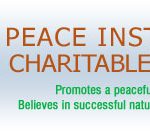
Peace Institute
Founded in 2002, the PEACE Institute Charitable Trust seeks to use conservation as a means to promote peace. Their activities include feasibility and impact evaluation of conservation projects, capacity-building around biodiversity conservation, environmental education, and right to information requests about activities that impact rivers and forests. Recently, the PEACE Institute Charitable Trust has been focusing much of their effort on protecting and restoring the Yamuna River through information-based campaigning.
- Address
-
India
- yamunajiye@gmail.com
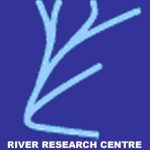
River Research Centre
The River Research Centre (RRC) is a non-profit organization that creates a space for studies on rivers including environmental flows and seeks to promote participatory river conservation, restoration, and management. RRC tries to understand the resource extraction and environmental management policies that affect landscapes at the river basin scale. By analyzing the problems and possible consequences of resource use, RRC is able to propose corrective measures through research based campaigns and advocacy, and intervene at the policy level. RRC's goal is to ultimately help people make the right decisions to avoid further degradation and ensure the long term sustainability of river basins.
- Address
-
India
- latha.anantha9@gmail.com
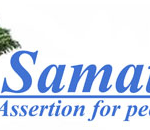
Samata
Founded in 1990, Samata is a social justice organization that advocates for the rights of the Adivasi people of Andhra Pradesh. Samata focuses specifically on protecting the natural resources and ecological integrity of the Eastern Ghats. More broadly, Samata seeks to hold the government accountable for its responsibility to protect the rights of minorities, promote sustainable development, and prevent environmental degradation. To achieve these goals, Samata promotes the participation of disadvantaged minorities in the democratic and economic development decision-making processes. Their activities include campaigning around tribal issues, strengthening tribal self-rule and decentralized governance, and supporting development through education, health, and capacity building for grassroots organizations.
- Address
-
India
- rrpragada@gmail.com
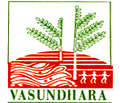
Vasunadhara
Vasundhara is a research and policy advocacy group based in the state of Orissa that works on environment, conservation, and sustainable livelihood issues. Their mission is to promote sustainable development in a way that is compatible with the empowerment of the rural poor, social justice, and economic equity. Vasundhara has maintained its original focus on community forestry, while also developing a broader set of workstreams that center around the sustainable livelihood of marginalized communities. Vasundhara has played an important role in documenting the success of community forestry initiatives and in helping the state government implement the Orissa Tribal Empowerment and Livelihoods Programme.
- Address
-
India
- msarin@satyam.net.in